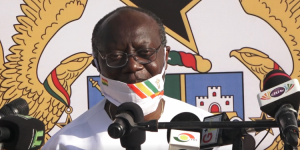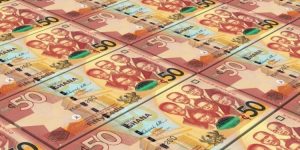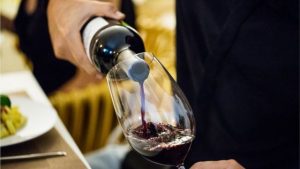The National Petroleum Authority (NPA) says refining crude oil in the country for petroleum products will only guarantee security of supply of the commodities, but it will not have any significant impact on the prices.
“In terms of petroleum products prices, refining crude oil locally will not have any significant change as against importation of refined products. For example, the USA have so many oil refineries in their country, but the prices of the commodity is still rising there,” Abass Ibrahim Tasunti, Head, Economic Regulation-NPA, has said.
The claim comes on the heels of a clarion call for the government to fast-track efforts to revive the Tema oil Refinery (TOR) to be fully operational as well as create an enabling environment for the establishment of more oil refineries in the country. TOR, the national premier oil refinery which was established in 1963 is under-utilized, wrestling with mounting debts and tax liabilities and it is near total collapse.
Some school of thoughts urge that the importation of petroleum products has contributed to the erratic price increases of the commodity, especially in the last six months. The prices of petroleum products like petrol, diesel and LPG in the country have hit the roof, compounding the economic woes of the people.
As at June 16, 2022, the ex-pump prices of petrol and diesel were quoted over GH¢10 and GH¢12 respectively. This has hugely contributed to the running inflation rate in the country. As at May 31st, inflation surged from 23.3% in April 2022 to 27.6%.
However, Mr. Tasunti of the NPA was of the view that the importation of petroleum products was not the key driver of skyrocketing prices but it was largely influenced by the global market price volatility, stemming out of the Russia/Ukraine war and the cedi depreciation, thus pushing both ex-refinery and ex-pump prices high in the country.
He was speaking at media engagement held in Kumasi. The interaction basically focused on the subject ‘Petroleum pricing formula, post deregulation and on fuel quality.’
Commenting on the deregulation policy, he said in the midst of the current global supply challenges, it is prudent for the country to uphold the policy to ensure supply security, indicating that “it’s better we allow consumers to continue pay the full price for the products so that they can get access to it rather than government subsidising but the product won’t be available.”
Table-top fuel stations
On his part, the Communications Manager, NPA, Mohammed Abdul-Kudus, said the Authority is collaborating with the Police Service to clamp down on all illegal fuel dispensary joints, especially ‘table-top’ fuel stations. He advised those engage in the illicit fuel trade to desist from the practice or face the full rigorous of the law when arrested.
Table-top fuel stations are common spectacles across the country, particularly in rural communities. Their products are mostly sold out in bottles. Fuel sold on table-top are not only expensive but also susceptible to contamination and adulteration. “The mobility of their activities makes monitoring very challenging. The Security and Intelligence Department of the Authority is working around the clock to contain those activities.”
Fuel quality test
The Head, Quality Assurance-NPA, Saeed Ubiedalah Kutia, disclosed that the Ministry of Energy is working on accessing a facility for the establishment of two standard laboratories for NPA in Accra and Kumasi. This he noted, will help improve fuel monitoring quality test in the country.
“At the moment, there is only one NPA lab in the country; it caters for all the samples from the over 4,000 fuel stations in Ghana. The cost of testing each sample is about $2,200 and it is taking toll on the Authority. This does not help detailed fuel quality testing, hence the need for more state-of-the-art laboratories, “he said.







